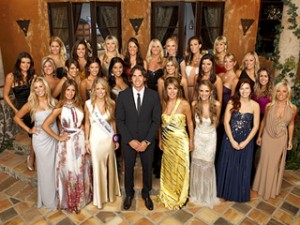Producers of “The Bachelor” Sued For Racial Discrimination
With very few exceptions, I’m not a fan of “reality” TV. But for some reason, it seems that it’s impossible to follow the news without seeing a story about a reality TV show. And now, a big story involving a reality TV show, and its contestants, has infiltrated the tiny journalistic niche of legal news: would-be contestants of the dating TV show “The Bachelor” are suing the producers of the series, alleging that it engaged in racial discrimination.
I don’t know if these allegations are true. However, the fact that there’s enough of a perception of discrimination that some plaintiffs felt that they needed to file a discrimination suit suggests that race is still an issue in all sectors of employment, and we still have a long ways to go before we’re a truly colorblind society.
 The lawsuit claims that prospective “bachelors” and “bachelorettes” who applied to be on the show were systematically discriminated against based on the fact that they were not white. The lawsuit claims that there have been 23 seasons of the show over 10 years, without a single person of color filling either role.
The lawsuit claims that prospective “bachelors” and “bachelorettes” who applied to be on the show were systematically discriminated against based on the fact that they were not white. The lawsuit claims that there have been 23 seasons of the show over 10 years, without a single person of color filling either role.
While this may seem like a relatively straightforward employment discrimination lawsuit; but the facts that it involves a popular TV show, and the qualifications for the job of “bachelor” are so subjective, there are some interesting wrinkles.
It appears this isn’t technically a suit under employment law, because the relationship between “bachelors” and the TV network they work for does not appear to be a regular employer/employee relationship, because the term of work is very limited, and the bachelor/bachelorettes don’t appear to be paid a salary. The relationship is more like that of an independent contractor.
And because of that, Title VII of the Civil Rights Act of 1964, which prohibits discrimination in employment, and which serves as the basis for most employment lawsuits, probably doesn’t apply.
Instead, the lawsuit is being brought under the equally-important, but less well-known, Civil Rights Act of 1866. This law was passed shortly after the Civil War, and it was originally intended to ensure that African-Americans have the same right to enter into contracts as whites, in part by requiring courts to treat contracts with African-Americans as parties exactly as they would treat any other contract.
In recent decades, the Supreme Court has significantly expanded its interpretation of this law, holding that it also prohibits private parties from refusing to contract with people based on their race.
The lawsuit also alleges that the defendants’ alleged conduct also violates California’s civil rights laws, which generally go further than federal law, providing for stronger punishments for racial discrimination, and more expansive remedies to the victims of discrimination. In addition, California law bans discrimination based on additional categories that aren’t covered under federal law, such as sexual orientation and gender identity.
With all this said, if the plaintiffs hope to obtain relief under either federal or state law, they will have to actually prove that they were discriminated against based on their race. This will be no easy task. Proving that an employer, or anyone else, intentionally engaged in racial discrimination is pretty difficult.
And in this case, the “job” qualifications for the position of “bachelor” and “bachelorette” seems incredibly subjective. It appears that the defendants would be able to come up with virtually any qualification, and plausibly link it to the job. All they might need to do, in that case, is come up with a qualification that all of the people who became “bachelors” have, which is not shared by many of the plaintiffs. Of course, they’d also have to show that this is not a pretext for racial discrimination, which would be difficult.
The defendants might argue that advertisers and viewers prefer to see white bachelors and bachelorettes starring in these shows. Many anti-discrimination laws have exceptions for “bona fide occupational qualifications.” For example, a job as a model for men’s clothing can only reasonably be done by a man. So, a woman would not be able to sue for sex discrimination if she was not hired as a model of men’s clothing because of her gender. Likewise, this rule can also allow for religious organizations to refuse to hire some employees (if the job is religious in nature) based on their religion.
However, no court in the U.S. has ever held that there is a bona fide occupational qualification for race. While they have left open that a situation could conceivably arise. However, they have repeatedly held that customer preference for a particular race is not sufficient for this exception to apply. So, even if the defendants could show that viewers and advertisers prefer to see white people starring in these shows, a court would probably not find that the bona fide occupational qualification rule applies.
While I don’t know how this case will turn out, and whether or not the producers of these TV shows deliberately engaged in discrimination, the fact that, in 23 seasons, no bachelor or bachelorette of color has ever been featured on either of these shows does not bode well for the defendants. That, by itself, is not enough to conclusively prove that deliberate discrimination took place, but it is certainly a very strong piece of supporting evidence.


Comments